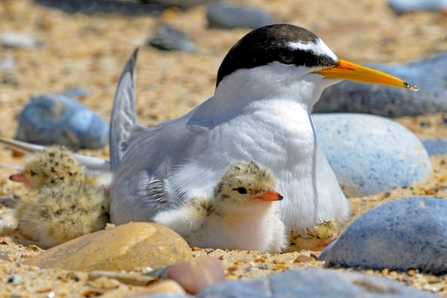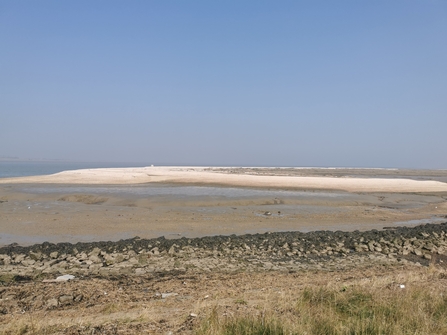Kent is home to some beautiful coastal reserves, many of which are very important sites for shorebirds and other wildlife that nest out in the open. As we know, the climate crisis has had a big impact on many species, nationally and internationally, but we are now starting to realise the impacts we are having more directly on coastal species. Bird disturbance on beaches has caused some huge declines in breeding success nationally, and that's why it's important to read the signs!
What do we mean by disturbance?
A good judge of whether birds are being ‘disturbed’ is if their heads are up, not feeding, and they look like they might fly off at any moment.
In the breeding season, adult birds are working tirelessly to protect their nests as well as making sure their chicks are well fed. Predation by birds of prey, foxes and mustelids are common in nature, and these birds are well versed in avoiding them, and even the slightest glance of a predator will send whole colonies up into the air. When birds do this, their bodies are full of adrenaline, and they become very stressed for a short time until they can be certain the threat has passed. While the adult birds are in the air, eggs and chicks become vulnerable to not only predation, but also the elements. In addition, whenever the birds have to fly up in to the air, or away from where they were feeding, it reduces the amount of time they have left in the day to get all the vital nutrients they need. When frequent disturbance takes place at a beach, these birds may die from malnourishment, and their eggs and chicks will suffer too.

